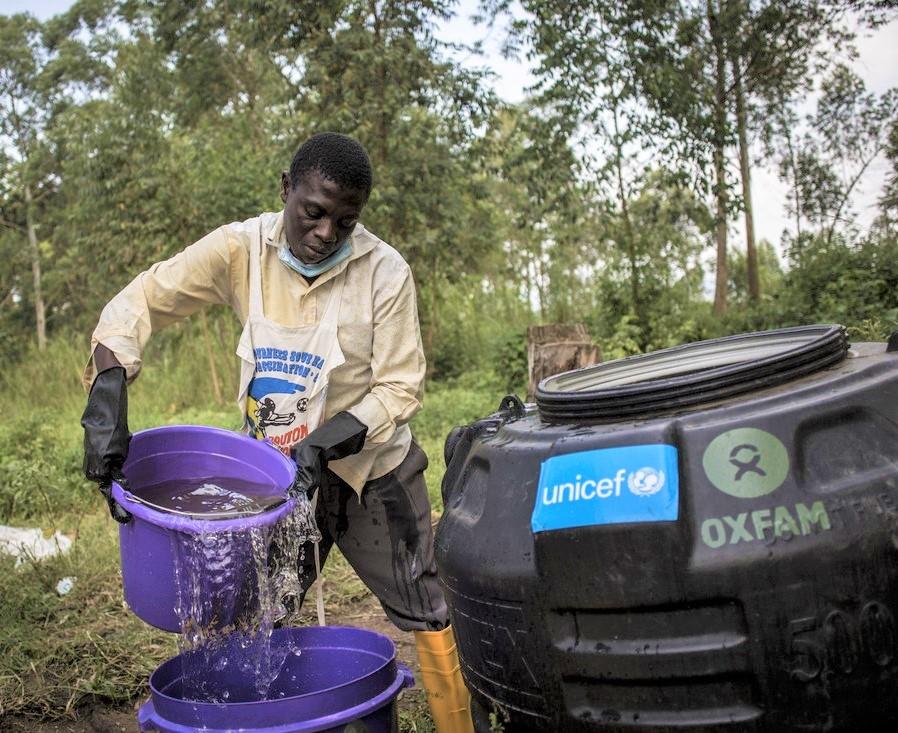The Democratic Republic of the Congo (DRC) saw no let-up in the steady pace of Ebola cases today, with the health ministry reporting six more cases.
In other developments, Oxfam, one of the nongovernmental agencies working in the region, weighed in on ongoing challenges in the outbreak, and the World Health Organization (WHO) African regional office provided a snapshot of events in its weekly update.
Latest cases in 3 hot spots
The six new cases are from three different locations. Katwa, the main epicenter, reported two, as did two smaller hot spots—Mandima and Vuhovi.
The developments lift the overall outbreak total to 1,022 cases, which includes 957 confirmed and 65 probable infections. Health officials are still investigating at least 161 suspected cases, but that total may be higher, because the ministry said health zones covered by the Butembo office couldn't report because of an internet connection problem.
Five more people died from their infections, four of them in community settings in Katwa and Mandima and one at Butembo's Ebola treatment center.
In other developments, the ministry said community dialogues in the wake of attacks on Ebola treatment centers resulted in several recommendations, and that the outbreak response has targeted two of them: infection prevention and control and risk communication/community engagement.
It said infection prevention teams will be taking steps to curb transmission in health facilities and in the community, such as disinfection, installing handwashing points, and providing personal protective equipment. A workshop on infection prevention was recently held in Goma, and a similar one on risk communication and communication is wrapping up in the city, with recommendations due soon.
Oxfam airs concerns over local elections
Along with other groups that have marked the DRC's eclipsing of the 1,000-case mark, Oxfam yesterday warned that humanitarian access to the outbreak region has deteriorated in the wake of the most recent attacks on Ebola treatment centers and community trust is almost nonexistent.
Oxfam's work in the region involves public health promotion, supporting community-led efforts to break transmission chains, providing clean water, and improving health center infrastructure.
In a news release, Tamba Emmanuel Danmbi-saa, Oxfam's DRC humanitarian program manager, said the growing presence of police and military is fanning the flames and making people even more frightened.
"While there is an imperative to protect staff in the field, using security forces during the Ebola response should be done with extreme caution," Danmbi-saa said. "If communities feel that they are being coerced into vaccination or decontamination they lose trust in the response. Building that trust is vital to stopping the spread of the disease."
Other groups have raised concerns about the role of police and military in the outbreak, and earlier this month the DRC's health ministry said there were misunderstandings about its involvement in response activities, though he acknowledged that police escorts of response teams in less secure areas had been perceived with suspicion.
Focusing only on the medical issues isn't enough to contain the epidemic, Danmbi-saa said, adding that health workers need to prioritize the affected people, not just the disease. "There needs to be a real change in the response to end the epidemic as soon as possible."
Also, the group said that upcoming local elections, scheduled for Mar 30, may trigger more violence. Voting in the national general election was postponed for the outbreak region, which raised suspicions that Ebola was being used as a political ploy. The rest of the country voted on Dec 30 to elect a new president and members of the National Assembly.
Results were announced on Jan 10, and one of the opposition candidates, Felix Tshisekedi—amid allegations of vote rigging from the other opposition candidate—was sworn in as president on Jan 24, with the outgoing president's party winning the majority of National Assembly seats.
WHO notes reversal of declining trends
In a weekly diseases and health emergencies update from its African regional office today, the WHO said moderate-intensity transmission continues in the DRC, with a slight reversal in declining activity over the past several weeks. It added that more health zones reported at least one confirmed case over the past 3 weeks.
Katwa is still the main hot spot, but several recent cases have also been reported in Masereka, Mandima, and Butembo, the WHO said.
The agency added that pockets of mistrust and insecurity are still challenging for contact follow-up and other measures, but it notes that transmission has stopped in many areas.
See also:
Mar 26 DRC update
Mar 25 Oxfam press release
Mar 26 WHO African regional office weekly report


















